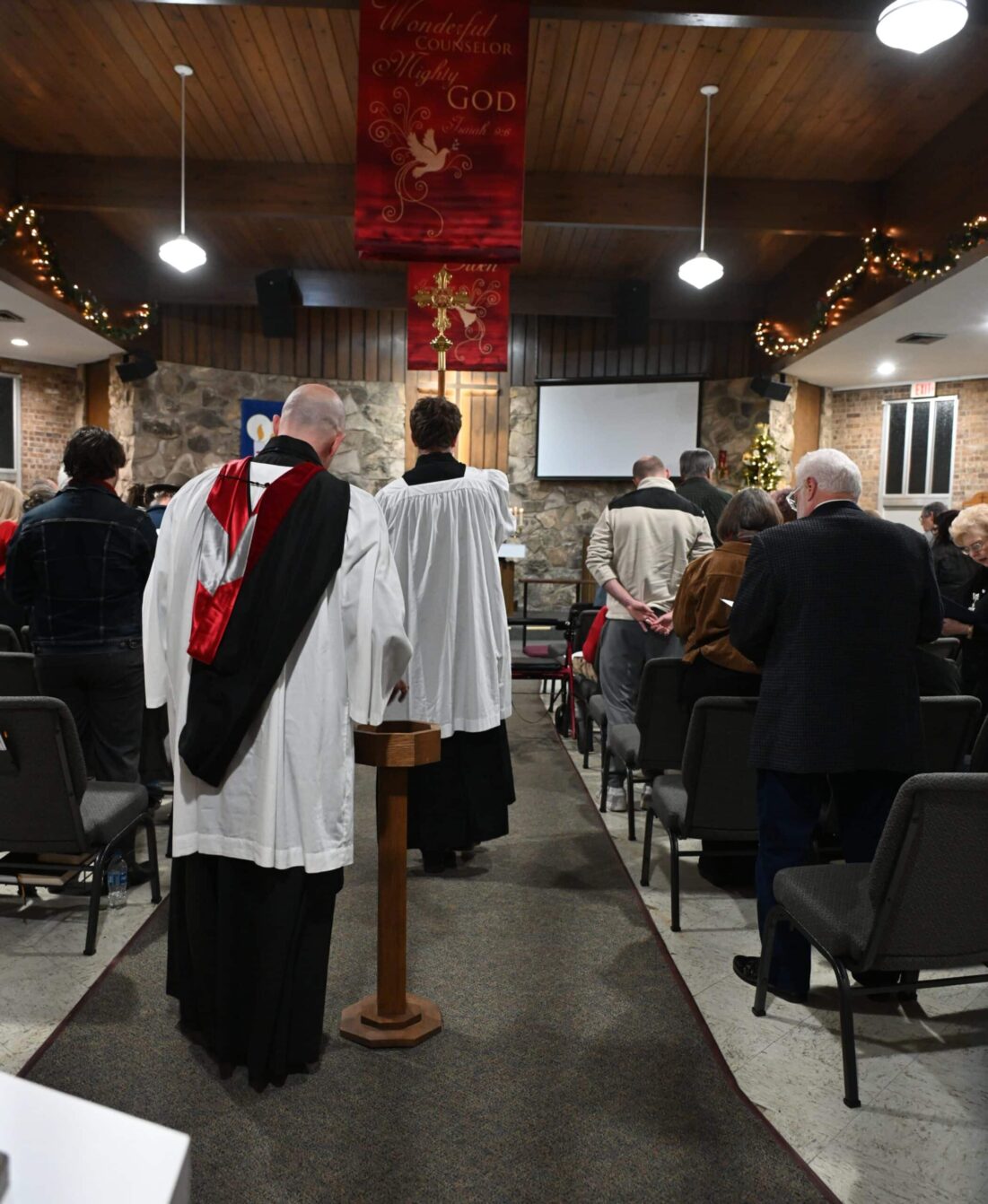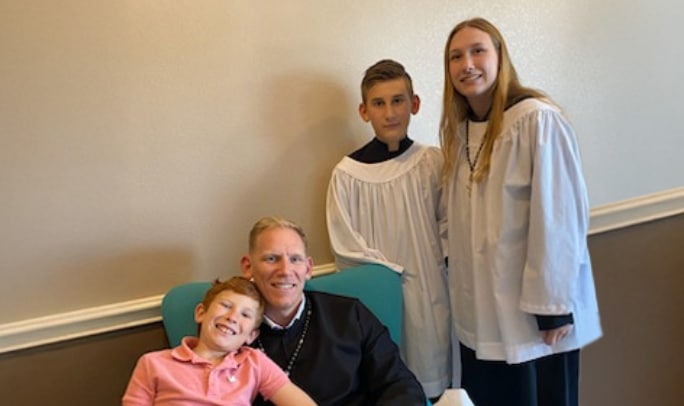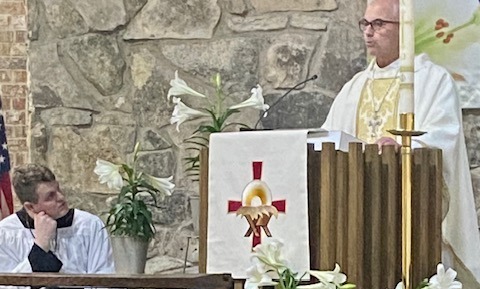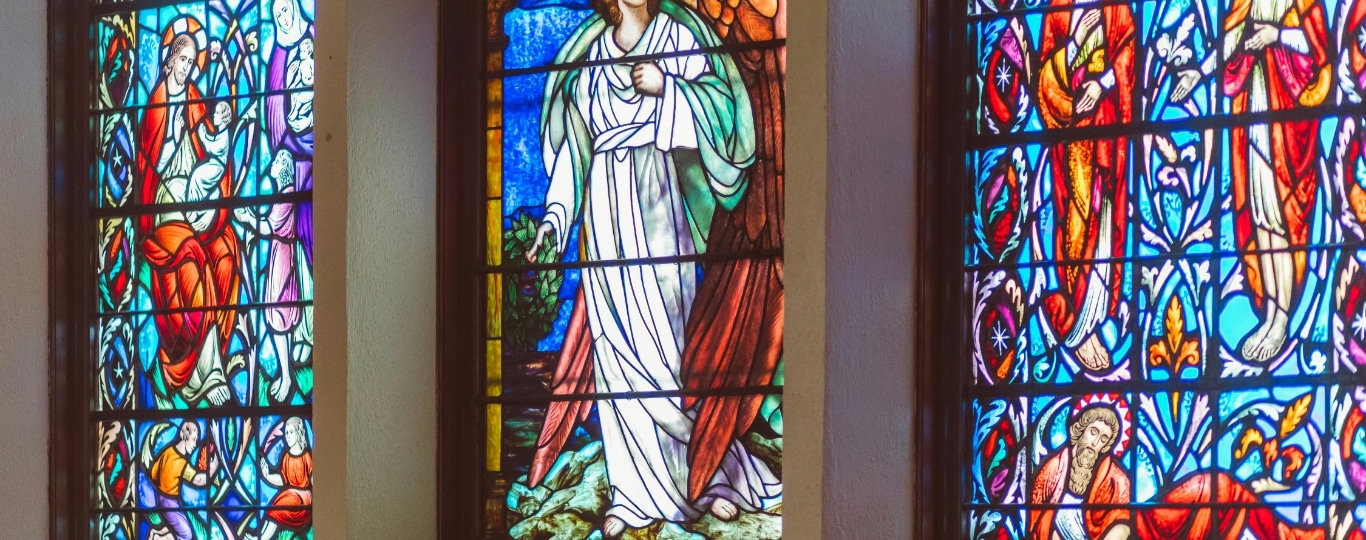Anglican? What’s that?
As disciples of our Lord Jesus Christ, Anglicans share with other Christians the historic biblical faith of the undivided Church of the first millennium. We believe in One, Triune God, the Father, Son, and Holy Spirit. The purpose of the Church on earth is to glorify God by our worship, by our service, by loving our neighbors, and by fulfilling the last command of Jesus to make disciples (Matthew 28:18-20) until He returns to earth in glory. Our commitment to the historic Christian faith is summed up by the words of St. Vincent of Lerins (445 AD) when he said: “Moreover, in the catholic (universal) Church itself, all possible care must be taken, that we hold that faith which has been believed everywhere, always, by all.”
Therefore, we, as traditional Anglican Christians, hold to the doctrines taught in the Bible and find our statements of belief in the historic Creeds (the Apostles’, Nicene, and Athanasian Creeds), the Book of Common Prayer, which shapes our worship, the Thirty-Nine Articles of Religion and the Ordinal, locally adapted in conformity to the standards set in 1549.
The Holy Scriptures
We accept the infallible authority of the Holy Bible over all aspects of our lives. It is truly for us “the word of God written”: a source of guidance, inspiration, and strength. The word of God is the sole infallible source of authority for the church, which all lesser authorities must conform to. We do not presume to change the Bible. We pray it will change us!
Book of Common Prayer (1928)
As Anglicans, our order of service (or “liturgy”) is found in the Book of Common Prayer. This ageless work not only provides the substance of our prayer and praise; it also contains key teachings, standards, and traditions as held by the Church throughout the 2,000 years of her existence. In accordance with the teaching of Scripture, we uphold the principle of the inter-relatedness of doctrine and worship, with the consequent understanding that if there is to be one common and uniting set of beliefs, then there must also be one common and uniting worship lex orandi, lex credendi (that which we pray is also what we believe).
Salvation
In the words of Jesus Christ, “You shall love the LORD your God with all your heart, with all your soul, and with all your mind." This is the first and great commandment. And the second is like it: "You shall love your neighbor as yourself. On these two commandments hang all the Law and the Prophets” (Matthew 22:37-40). We accept the Law of God as just, and we accept that all men have sinned, fallen short of the glory of God, and are in need of forgiveness (Romans 3:23).
The Good News of the Gospel is this; that Jesus Christ came to save sinners (1 Timothy 1:15). For this reason, God became man, suffered on the Cross, died, was buried, and rose again on the third day according to the Scriptures (1 Corinthians 15:4). So that whoever believes on Christ shall not perish but will have eternal life (John 3:16). Salvation is a free gift, merited only by Christ and His work and bestowed by God’s grace.
While we do confess that all men are sinners, we acknowledge that Scripture clearly instructs we live a life of repentance away from sin—not towards it (1 Corinthians 6:9-11; Romans 6:1-2). The word of God is not to be bent and conformed to the present world—the present world must be conformed to the word of God.
The "High-Calling" of Anglicans, Everywhere…
St. Mark’s maintains unapologetically the Ten Commandments as set forth in all parts of the Scripture. Parishioners of St. Mark’s are admonished to consecrate themselves to God, to make Jesus Christ a living presence in their daily lives, to serve Him faithfully as dedicated disciples in a broken world, and thus find the peace, joy, and confidence which lies at the center of Christian Life. This is optimal if one is engaged in the Threefold Rule of Anglican Spirituality as coined by Fr. Martin Thornton (died 1986). The Threefold Rule of Anglican Spirituality (Office-Eucharist-Devotion) can best be described as follows: Daily Office of Morning and Evening Prayer, Weekly Eucharist, and personal meditation and study of GOD’s Holy Scriptures, using the Prayer Book’s Lectionary.
Christian Sexual Standards
In accordance with the teachings of Scripture of the ancient and undivided Church, supported by the historic 1928 Prayer Book witness, St. Mark’s acknowledges sexuality to be one of the most powerful forces for good or evil in the lives of human beings yesterday, today, and until that Great Day of Christ’s Return. Therefore, the human sexual relationship is intended by God to be confined to the safeguards of the covenant of Holy Matrimony betwixt a man and a woman. We celebrate this Scriptural union and accordingly maintain that sexual activity outside of that union, homosexual or heterosexual, is contrary to Biblical teaching and is intrinsically sinful and forbidden by GOD. St. Mark’s adheres to the standard of chastity among its unmarried members and opposes any doctrine which would have the effect of endorsing liaisons not in accordance with historic Biblical standards, before unions sanctioned by Holy Mother Church, and supported, principally, by Holy Writ.
The Sanctity of Life
As a denomination, we vigorously affirm the biblical teaching of the sanctity of all human life, and we deplore the practice of permitting abortions, or any other genocide of natural human life until natural human death. In accordance with Scriptural Witness, the mission of St. Mark’s holds that life itself is God's possession, that the theology implicit in the Creation Narrative of Genesis delegates responsibility for life to human beings as a sacred trust under the aegis of the 6th Commandment, and that, therefore, life must not be willfully terminated save under the most urgent circumstances and for the most compelling reasons.
Divorce
In accordance with the teaching of Scripture, the holy Traditions of the ancient and undivided Church, and the historic Prayer Book witness, this mission upholds marriage as intended by God to be a lifelong relationship, and is so obligated to teach its youth, those preparing for matrimony, and those whose marriages seem imperiled. Nevertheless, this mission also recognizes that the most sincere vows, whether those of ordination, monastic vocation, or marriage, will sometimes fail. In the ancient understanding of Eastern Orthodox Christianity, it may not be physical death alone that overtakes a marriage, but "spiritual death" as well. When a marriage has died, the Church must carefully and charitably weigh the eligibility of a divorced person to enter into a new covenant of marriage, not relying upon the casuistry of Annulment, but rather asking if a greater good might be realized out of the sin of divorce. Accordingly, and until a broader policy in this regard is imposed by affiliation, this mission will not conduct a marriage in which one or more applicants have been previously divorced unless:
- at least one party is a mission member or an immediate blood relative thereof,
- the divorced applicant(s) can present evidence that a civil decree has been issued and that its obligations have been fully met, and
- there is both spiritual and psychological indication that the future relationship will be a holy and permanent one.
Ordination of Women
In accordance with the teaching of Scripture, the holy Traditions of the ancient and undivided Church, and the historic Prayer Book witness, this mission upholds the principle that it is God's will that the specifically apostolic ministry of blessing, consecrating, and absolving is intended to be exercised by whole, male, baptized persons who have been called to and trained for this holy vocation.
Denominational and Inter-Religious Relations
St. Mark’s believes that unity among Christian believers should be actively pursued in the spirit of the Lord's high priestly prayer, "... that they all may be one," and that opportunities for cooperative ministry should be sought wherever possible. Nevertheless, this mission maintains loyalty to its Anglican heritage and therefore holds as a basis for integral union the fundamentals set forth in the Chicago-Lambeth Quadrilateral (1886). We further believe that while relations with non- or quasi-religious bodies should be marked by respect, there can be no compromise with the Lord's assertion: "I am the way, the truth, and the life."




